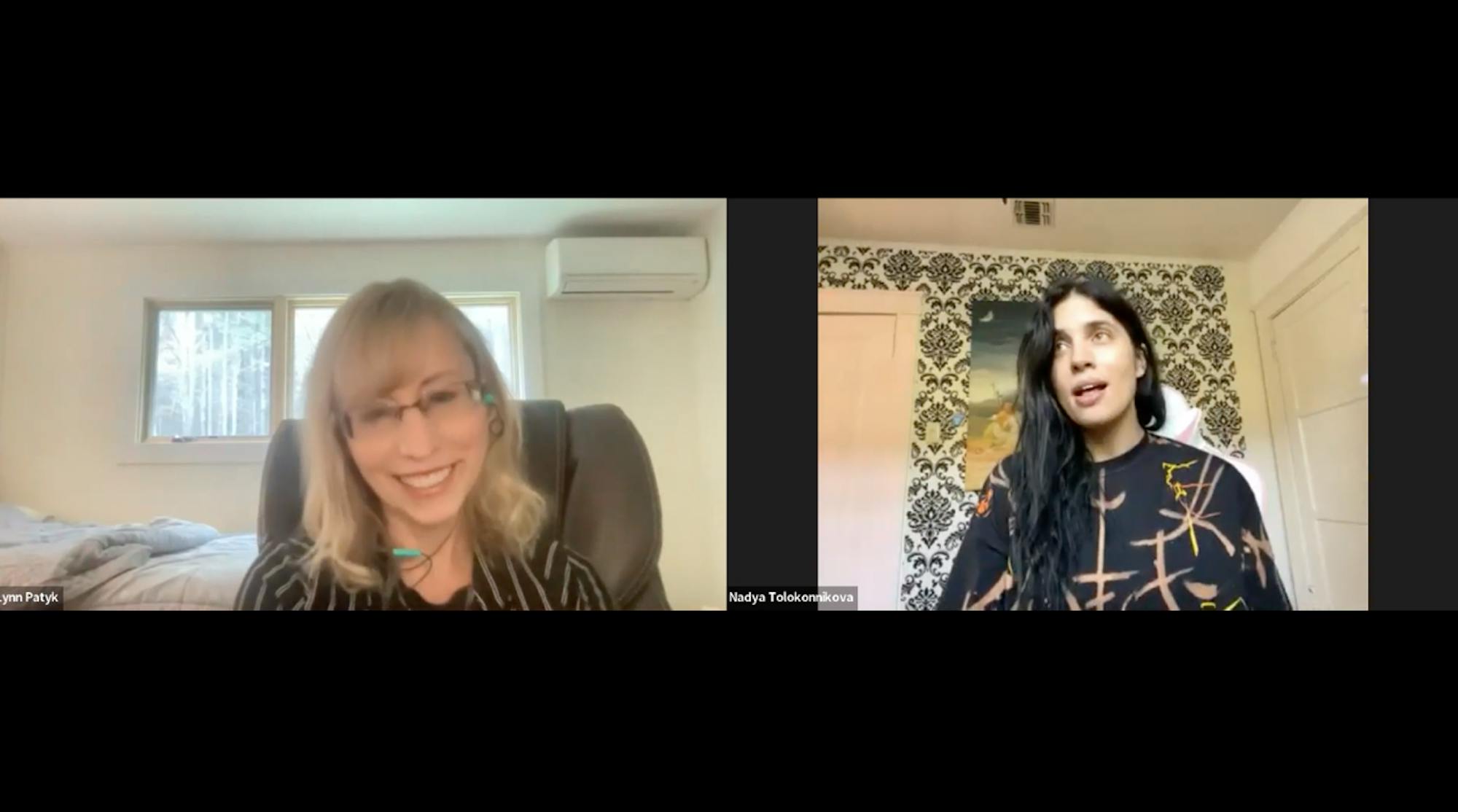On Wednesday, the Dartmouth Political Union hosted Russian political activist Nadya Tolokonnikova for a conversation and Q&A about her history of activism and continued efforts to promote human rights. An original member of the Russian feminist protest punk rock and performance art group Pussy Riot, Tolokonniova reflected on her 2012 jail sentence in Moscow for hooliganism, and her optimism for Russia amid the ongoing war in Ukraine.
The virtual event was moderated by Russian associate professor Lynn Patyk and drew around 90 attendees.
The DPU initially thought to host Tolokonnikova because of the group’s intentions to bring in more international speakers, according to DPU ambassador Kylie Del Rosario ’24. She said that with speakers like Tolokonnikova, the DPU hopes to “[globalize] political activism on campus.”
DPU president William Reicher ’22 said he reached out to Tolokonnikova’s booking agent for the event six months ago, before “any of the current conflict with Ukraine had started.”
“We had invited her to come talk about her experience as a performance artist and an activist in Russia. After we had already booked the event and the time, the conflict in Ukraine blew up,” Reicher said. “I just thought it was very prescient that she should be talking at this time.”
Del Rosario also pointed out the timeliness of the event.
“With her being a Russian political activist and Russian dissident, in terms of the political climate, it was perfect timing,” Del Rosario said.
Patyk began by asking Tolokonnikova where she considers home. Tolokonnikova explained that “the whole world and beyond is home,” adding that she hasn’t been back to her hometown — Norilsk, a small town in Siberia — since moving to Moscow at 16, and considers herself a kind of nomad. Tolokonnikova said that growing up in such a remote place forced her to develop the communication and organizational tools necessary for political activism.
“That was my favorite part of the event, just her stating how the world is her oyster. Everywhere around the world is her home,” Del Rosario said. “Especially since she is geographically anonymous, no one knows where she is. That’s the whole point.”
In response to a question asking how she comes up with ideas for art protest, Tolokonnikova said she feels it is “[ethically] imperative” to involve personal activism in the art and avoid being entirely performative. She said that it is not so much about the quality of the performance as it is the quality of the protest.
Maddie Shaw ’25 said that she was “really interested” in attending the event, especially as she plans on majoring in both Russian and government. In particular, Shaw said she appreciated Tolokonnikova’s discussion of her time in jail.
“It was really cool to get to hear from someone who has served a prison sentence and believes that it actually made them stronger,” Shaw said. “Although she described the lifelong trauma she developed from her sentence, it was interesting to hear about the power she said that she gained from seeing that she got her prison warden fired and the slave labor reduced in her prison.”
Tolokonnikova also discussed her hope for the future of Russia separate from current president Vladimir Putin’s regime. She said that it was counter-productive to assume all Russians support Putin’s actions amid the war with Ukraine and that people must instead recognize how difficult it is for “ethical” Russians to organize under an oppressive government.
“She talked about how, realistically, she can’t expect people to protest or oppose the government like she did,” Shaw said. “She gave some examples of small acts of opposition that people have been doing, even if that’s just looking for alternative news sources.”
Reicher also noted Tolokonnikova’s discussion of current Russian activism. He said that Russians protesting against the war in Ukraine have larger audiences than Westerners may realize, adding that his views do not represent the views of the DPU.
“But at the same time, a large portion of the Russian population remains supportive of Putin or at least outwardly supportive … and so squaring away those two facts is a difficult thing for a lot of people.”
The event ended with Tolokonnikova talking about her current efforts to provide Russian political prisoners with legal fees and to help run the Russian independent news outlet Mediazona, which she co-founded with fellow Pussy Riot member Maria Alyokhina.
“I would hope that students leave the event with an appreciation for [Tolokonnikova’s] work and an appreciation for what she stands for — which is that tyrants are not invincible and human rights come before anything else,” Reicher said.




